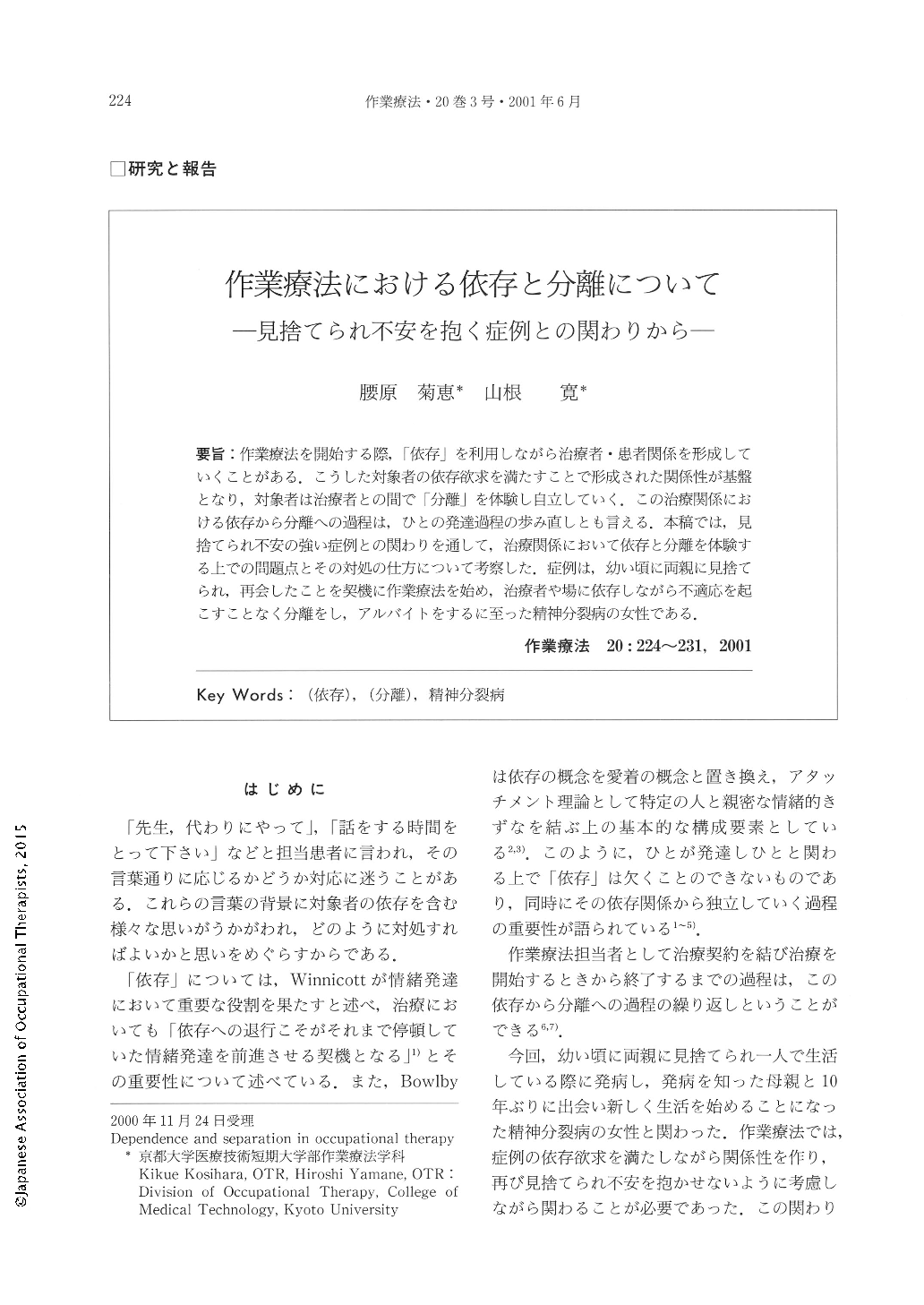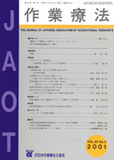Japanese
English
- 販売していません
- Abstract 文献概要
- 1ページ目 Look Inside
- 参考文献 Reference
要旨:作業療法を開始する際,「依存」を利用しながら治療者・患者関係を形成していくことがある.こうした対象者の依存欲求を満たすことで形成された関係性が基盤となり,対象者は治療者との間で「分離」を体験し自立していく.この治療関係における依存から分離への過程は,ひとの発達過程の歩み直しとも言える.本稿では,見捨てられ不安の強い症例との関わりを通して,治療関係において依存と分離を体験する上での問題点とその対処の仕方について考察した.症例は,幼い頃に両親に見捨てられ,再会したことを契機に作業療法を始め,治療者や場に依存しながら不適応を起こすことなく分離をし,アルバイトをするに至った精神分裂病の女性である.
We sometimes encourage patients to become dependent on therapists to establish a medical treatment relationship early in the occupational therapy process. Although some patients become frustrated with their dependence on therapists, with a gradual and incremental separation process, they can eventually become independent from the therapist. In this paper, I consider the problem of dependence and separation in the occupational therapy process. The case study involves a 22-year-old woman with schizophrenia. She had been suffering from abandonment anxiety since she was deserted by her parents. As a result of this type of anxiety, she was not able to depend, fully, on her therapist. In such a case, it is important to not hurry the therapist/patient relationship ; if the relationship is forced, then establishing separation, which is the ultimate goal, becomes more difficult. A premature separation can cause even more abandonment anxiety, and the patient will fall into a double-bind state between dependence and separation with the therapist. In occupational therapy, the dependence/separation process can be just as sensitive an issue as the same process in the day-to-day living of a human being.

Copyright © 2001, Japanese Association of Occupational Therapists. All rights reserved.


